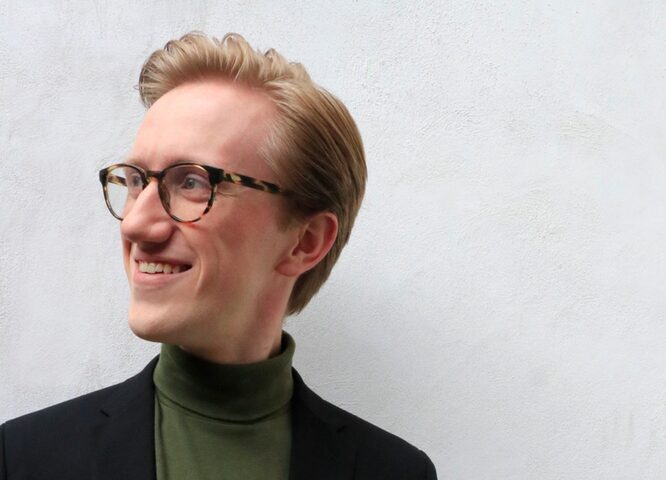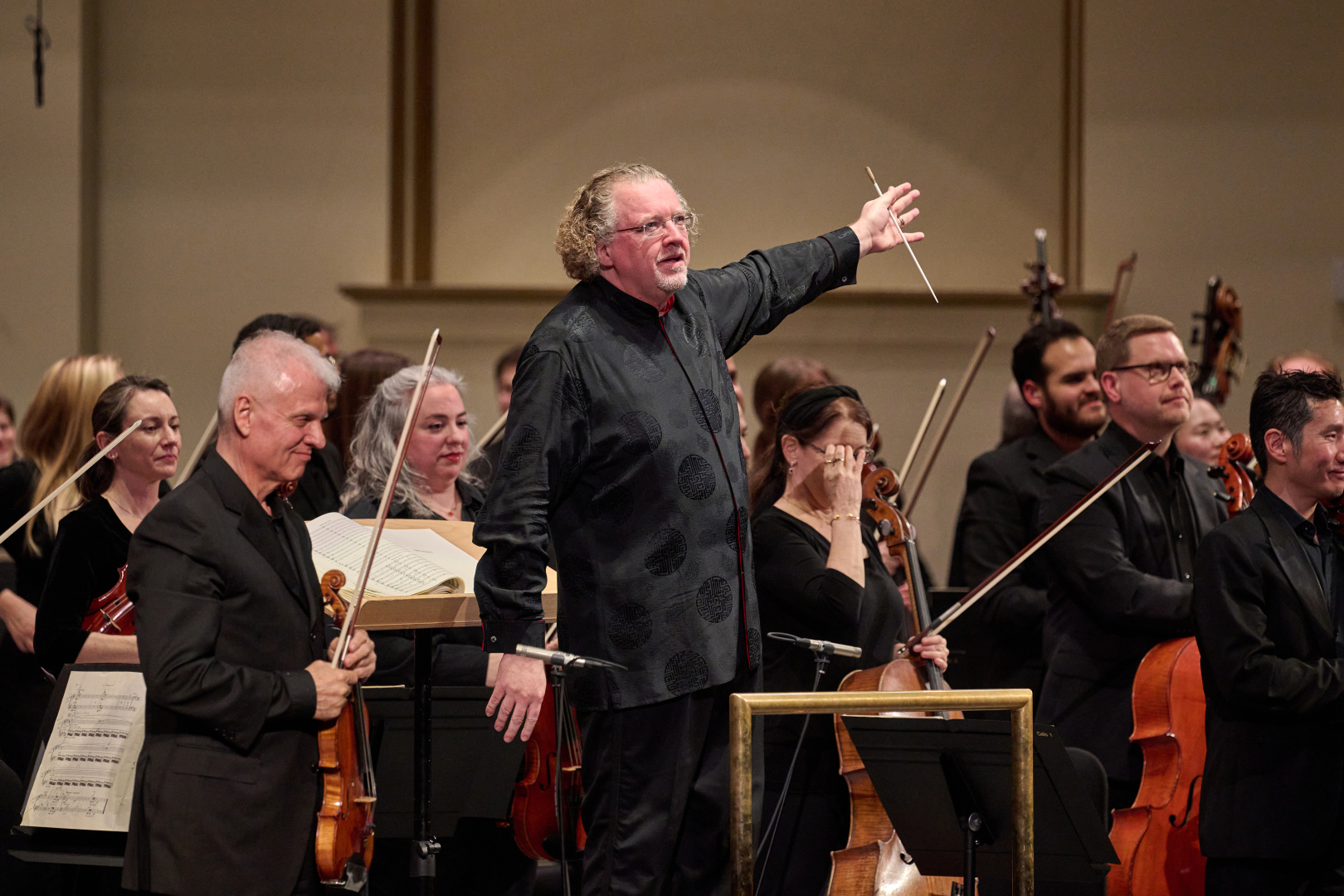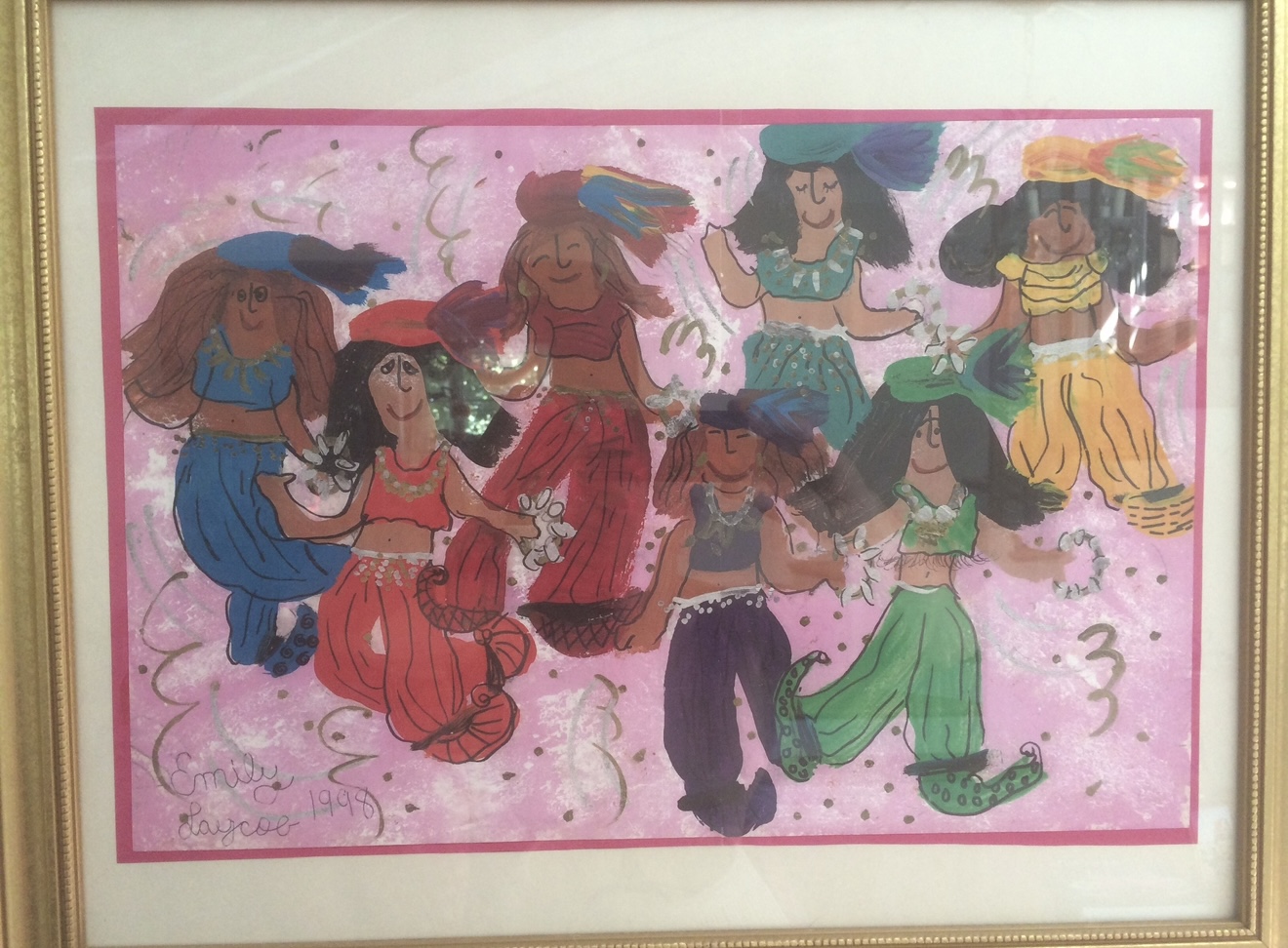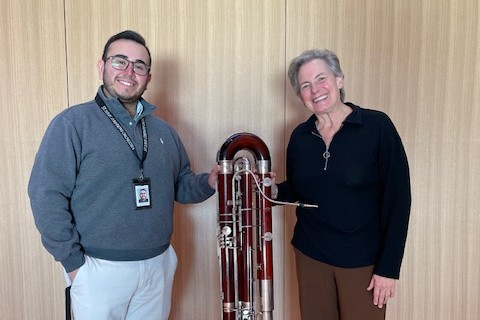Meet Samuel Hollister: the SLSO’s New Assistant Conductor
By Eric Dundon
With the start of the St. Louis Symphony Orchestra’s 145th season on the horizon, the institution welcomed a new face to the artistic leadership team. Conductor Samuel Hollister has been named the SLSO’s Assistant Conductor and The Fred M. Saigh Youth Orchestra Music Director of the St. Louis Symphony Youth Orchestra, an appointment made by Music Director Stéphane Denève following an international search.

In his role as Assistant Conductor, Hollister will assume a variety of conducting responsibilities. He will make his St. Louis debut conducting the SLSO at its Concert for Kids: Wild Symphony performance on October 5, 2024, at the Touhill Performing Arts Center at the University of Missouri–St. Louis. He will also lead the orchestra in several additional concerts throughout the season. Central to his role, Hollister will assist Denève and an international roster of guest conductors during classical concert weeks.
In addition to his role as Assistant Conductor, Hollister will develop programming and lead the St. Louis Symphony Youth Orchestra (YO) as the ensemble’s Music Director. The SLSO spoke with Hollister about his appointment and his musical background and values.
This interview has been edited for length and clarity.
SLSO: Take us to the beginning of your musical journey. How did you get started in music?
Samuel Hollister: I remember my parents asked me, in what is one of my earliest memories, what instrument I wanted to play. I’d said I’d like to play the drums, and the only thing I remember about this [laughs] is my mom said, “try again.” So, I started as a pianist at age four. I’m glad I landed on the piano because it’s a harmonic instrument. Now as a conductor looking back, I’m grateful to have had that type of musical training and exposure to the vertical in music—the simultaneity of sounds—because it really formed my ear and I think pushed me in the direction of listening to music in that way.
What’s a formative musical experience for you?
When I was 11 years old, I saw an orchestra perform live for one of the first times. I saw the Rhode Island Philharmonic perform Mahler’s First Symphony with Larry Rachleff conducting. I’d never heard anything like that. It felt like I was going from seeing the world of music in black and white to suddenly seeing it in technicolor. I knew then that’s what I wanted to be a part of for the rest of my life.
You come to this position with the SLSO having other experiences including the Civic Orchestra of New Haven (Connecticut), Opera Saratoga, and the Peabody Institute’s Opera Department, as well as a variety of performing experiences from chamber music to musical theater. How has the variety of musical experiences informed your musical point of view?
I’ve had a lot of important experiences that define my values as a musician. What excites me the most in all my experiences is multidisciplinary collaboration. I founded a nonprofit in 2018 called Aurora Collaborative in Rhode Island, which was a community music program. In all the performances, our mission was to combine music with art and writing and sometimes dance and textiles. We had a unique approach to what a concert could look like. That has stayed with me and is something I know Stéphane [Denève] values as well.
What else is important to you as a musical leader?
Another aspect of my career so far has orbited around the idea of mentorship. When I was the director of orchestras for a year at University of Rhode Island, I was working a lot with young musicians, people who were majoring in music, people who wanted to go on to major in music, and of course, sometimes people who didn’t. And I’ve had a lot of very important mentors in my life, and I still do. My career is still quite young, and I rely on the support of mentors like Stéphane [Denève] and Leonard [Slatkin, SLSO Conductor Laureate] and many others. I love having the chance, even early in my career, to do everything I can to help people explore their passion for music.
That idea dovetails nicely with a core facet of your role with the SLSO, that of the Music Director of the St. Louis Symphony Youth Orchestra.
The most important thing that I want to achieve and to stress with the members of the Youth Orchestra at the very beginning of our experience together, is to make sure that everyone feels that they belong there, that they have a home, and to know that we will be striving for musical excellence. It will take a lot of effort. It will be tiring, and it will take some sacrifices. But that within those expectations and goals, the most important thing is that we build a community in our ensemble as well as in our audiences.
Let’s do a lightning round of questions. A composer who always inspires you is…
Jean Sibelius
A composer whose music should be heard more often is…
Emilie Mayer. Or Harriet Steinke, who’s a wonderful friend of mine.
Where did you grow up?
Jamestown, Rhode Island.
What are you eager to do or see in St. Louis?
Forest Park. I’ve gone on long walks in Forest Park all three times, all four times that I’ve been to St. Louis this year, and it’s just extraordinary. I used to be into baseball. Maybe the Cardinals are my ticket to being interested again.
Anything in particular you’re looking forward to about your role with the SLSO?
I’m really looking forward to getting to know the individual members of the Youth Orchestra and what matters to them.
You have a free weekend. How do you fill your time?
I love exploration. I’m visiting all the national parks. I’ve visited 17 of 63, so I’m nowhere near there, but I’m determined to get there eventually.
Eric Dundon is the SLSO’s Public Relations Director.


